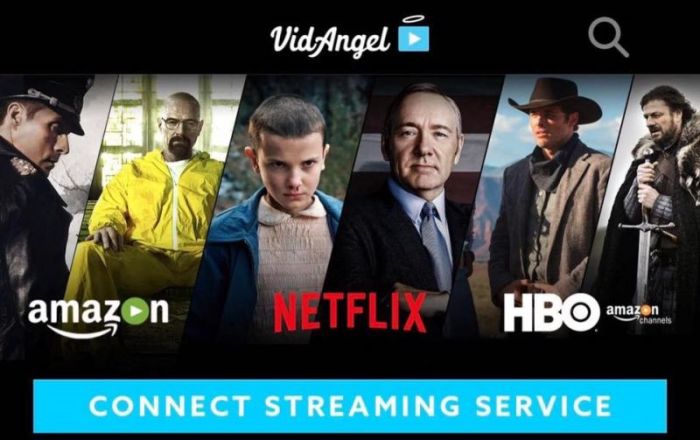VidAngel vs. Disney: New House Bill to Allow Filtering Companies Stream Major Studio Films

VidAngel was shut down by Disney and other Hollywood companies in 2016 for filtering TV and movies to make them suitable for children and families to watch, but a new bill introduced in the House would protect the independent streaming app.
Under the bill, H.R. 6816, sponsored by Rep. Mia Love, R-Utah, the "Family Entertainment and Copyright Act of 2005" would be amended to clarify that streaming services are now included among approved filtering devices along with DVD players. The new bill is called "The Family Movie Act Clarification Act of 2018."
VidAngel is an entertainment platform that was created to help families filter out language, nudity, violence, and other mature content from movies and TV series that are popular today. However, the independent company made national news when Walt Disney Company, Lucasfilms, 20th Century Fox, and Warner Bros. all filed a lawsuit against it, claiming the video streaming service was infringing on their copyrighted material.
The company bounced back and began using modern streaming platforms such as iOS, Android, and ROKU to enable families to stream and filter shows on Netflix, Amazon Prime, and HBO through VidAngel's services, but was still banned from doing so with Disney films and other TV shows. Love's bill would enable the Utah-based company to operate as intended.
Executive Director of Protect Family Rights Coalition, Bill Aho, celebrated the bill.
"The bill will help VidAngel and any other filtering companies that work through lawful streaming services. If Congress passes this bill, there will be more companies offering more options with more technology available to families," Aho, former CEO of ClearPlay, told The Christian Post on Thursday.
"The sad truth is that filtering technology is an economic win for Hollywood. We're talking about filtering movies that are legally streamed and paid for through Amazon, Netflix, Hulu and others. It's astonishing that the studios are willing to make less money to make sure families don't miss any violence, sex or other adult content," he added.
In an earlier statement Aho added: "The 2005 Family Movie Act was a long and extremely hard-fought battle in which we were outspent and outmanned, and yet despite major pressure from Hollywood, were able to convince both parties in Congress to do the right thing for parents and their children. Today is no different. ... We call on the House Judiciary Committee, the administration, and representatives in both parties and both chambers to immediately get behind this bill and see that it arrives on the president's desk. We are united in our resolve to see this through."
The way VidAngel sees it, Hollywood is saturated with nudity, violence, and profanity, making it impossible for children to view films without being exposed to content that is not fitting for them.
The streaming company maintains that they "do not believe in censorship." Instead, their goal is to simply provide families the opportunity to filter the content Hollywood provides and make it suitable for their family.
As a way to cater to the faith-based community, it also provides the option to filter scenes in a film that use the Lord's name in vain, along with the option to filter out adult content.
Aho asserts that Disney is trying to turn their lawsuit into "a moral issue — claiming a violation of artist rights. But they regularly trample those rights when selling to big markets like China. They don't seem to care if the Chinese miss gratuitous sex or profanity. They just don't want Americans to have the same privilege."
More than 30 pro-family groups support the bill and signed a letter to House Speaker Paul Ryan stating so. Tony Perkins, president of the Family Research Council, Dr. James Dobson of Family Talk, Bishop Harry Jackson of ICC Churches, and Ted Baehr of Movieguide were all listed among those who support the legislation.
"To preserve the right of parents to shield their children from harmful content, Congress needs to update the [Family Movie Act] to explicitly include streaming," the letter says. "The proposed update defends the rights of families to filter when using authorized streaming services, like Netflix and Amazon, and without sacrificing studio revenue or violating the Copyright Act."
VidAngel's filtering system is accessible on any major device for $7.99 a month with the first month free. For more information or to sign up for the service, visit VidAngel.com.





























